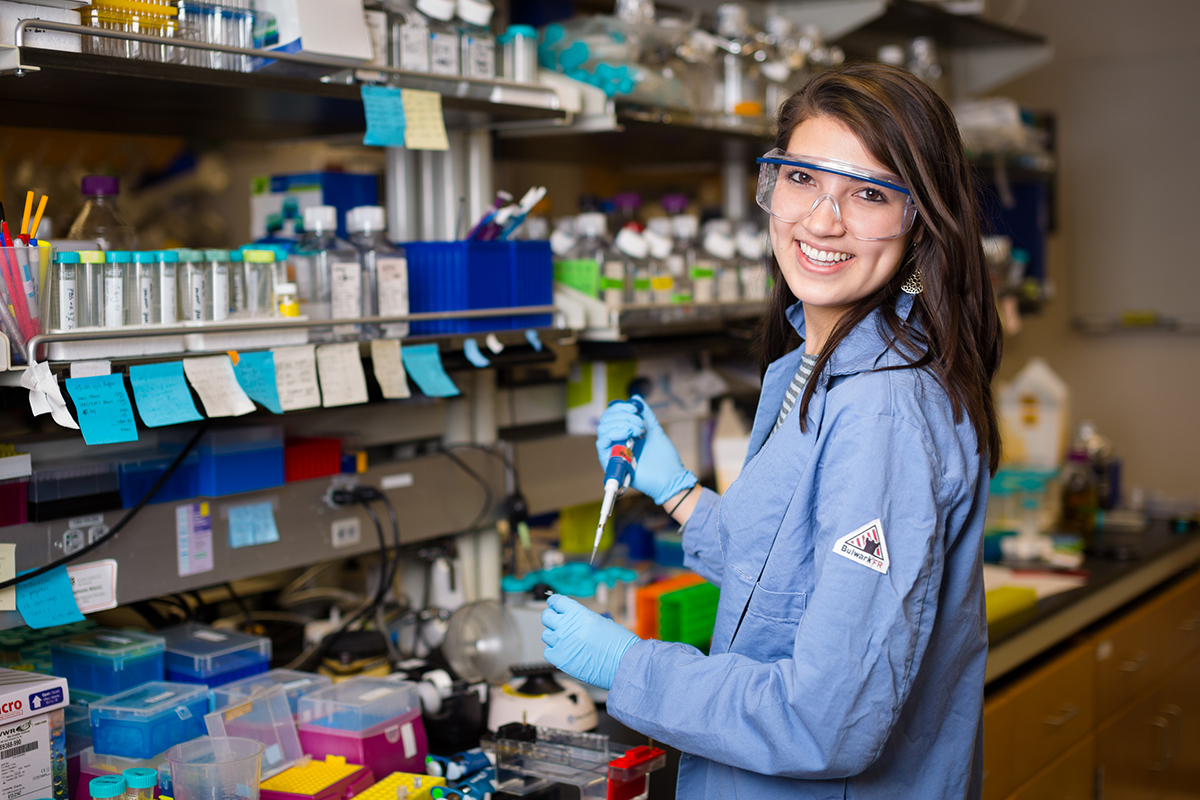Cornellians to share scientific studies at AAAS meeting
By Blaine Friedlander

Cornell faculty and students will be among thousands of scientists from about five dozen countries – representing a broad array of research – to swarm Washington, D.C., Feb. 11-15 for the American Association for the Advancement of Science (AAAS) annual meeting and exposition.
“The world of science – from agriculture to engineering to zoology – is inherently collaborative,” said Ronnie Coffman, director of International Programs at the College of Agriculture and Life Sciences. “By bringing scientists together from around the globe and collaborating through international meetings, we can achieve solutions to our world’s toughest problems rapidly.”
Coffman and John Bakum, communications specialist in International Programs, organized the Feb. 14 “Pathogens Without Borders” session, which Coffman will moderate. Jessica Rutkoski, adjunct assistant professor of International Programs and a research scientist at CIMMYT, the International Maize and Improvement Center, will explain how harnessing data on a large scale could dramatically accelerate improvement in crop yield and disease resistance worldwide in “Using Big Data and Global Partnerships to Accelerate Rates of Genetic Gain in Wheat.”
Chiedozie Egesi, a molecular plant breeder and geneticist at Nigeria’s National Root Crops Research Institute and Cornell’s manager for the NEXTGen Cassava project, will discuss unlocking plant genetic diversity and incorporating useful genes from cassava germplasm collections into adapted cultivars, in "Bringing Cassava Breeding Into the 21st Century.”
Stephanie Wisner ’16 will present her research, “Dissecting the Functions of the Multiple Enzymatic Activities of SirT2 in Cancer,” Feb. 13, which concerns how the protein SirT2 may be employed in anti-cancer therapies. Wisner serves as editor-in-chief of the Cornell chapter of Science in Society Review (Triple Helix), an international undergraduate journal based at Cambridge University, England.
Friday, Feb. 12
Kelly Zamudio, the Goldwin Smith Professor of Ecology and Evolutionary Biology, co-organized “Advancing Knowledge of Global Amphibian Decline With International Collaboration.” Ana Longo, Ph.D. ’15, a postdoctoral researcher at the University of Maryland, will discuss disease emergence in her talk, “Global Collaborative Responses in Responding to Amphibian Chytridiomycosis.”
Chris Barrett, director of Cornell’s Dyson School of Applied Economics and Management, will moderate “Win-Win or Lose-Lose: Poverty, Human Health and Environmental Quality.” The panel will cover environmental poverty traps, such as soil degradation; how marine resource depletion aggravates persistent poverty; and discuss connections between ecosystem degradation and human health, poverty reduction interventions and conservation where livelihoods depend heavily on natural resources.
Saturday, Feb. 13
Carla Gomes, professor of computer science and director of Cornell’s Institute for Computational Sustainability, will discuss how to accelerate scientific discovery by using citizen-science data and incorporate it to address sustainability challenges, such as poverty mitigation in Africa and renewable energy in “Citizen Science and Information Technology: Engaging People for a Better Planet.”
Philip Liu, professor of civil and environmental engineering, will examine “Evolution and Progress in Tsunami Hydrodynamics,” presenting new advances in tsunami detection and current best international practices.
Alison Power, professor of ecology and evolutionary biology and science and technology studies, will discuss “Ecological Factors That Influence the Emergence of New Crop Diseases” at the “Global Science to Protect Our Global Farm” session. Power will present data on the influence of landscape structure, disease vector composition, transmission dynamics and processes on the emergence and spread of recombinant strains of potato virus Y.
Sunday Feb. 14
At the “Emergence of Intelligent Machines: Challenges and Opportunities” session on Feb. 14, Bart Selman, professor of computer science, and Gomes have organized discussions on examining the impact on society of current and future artificial intelligence technology. Gomes will moderate the panel; Selman will speak on, “The Future of AI: Reaping the Benefits While Avoiding Pitfalls.”
Media Contact
Get Cornell news delivered right to your inbox.
Subscribe